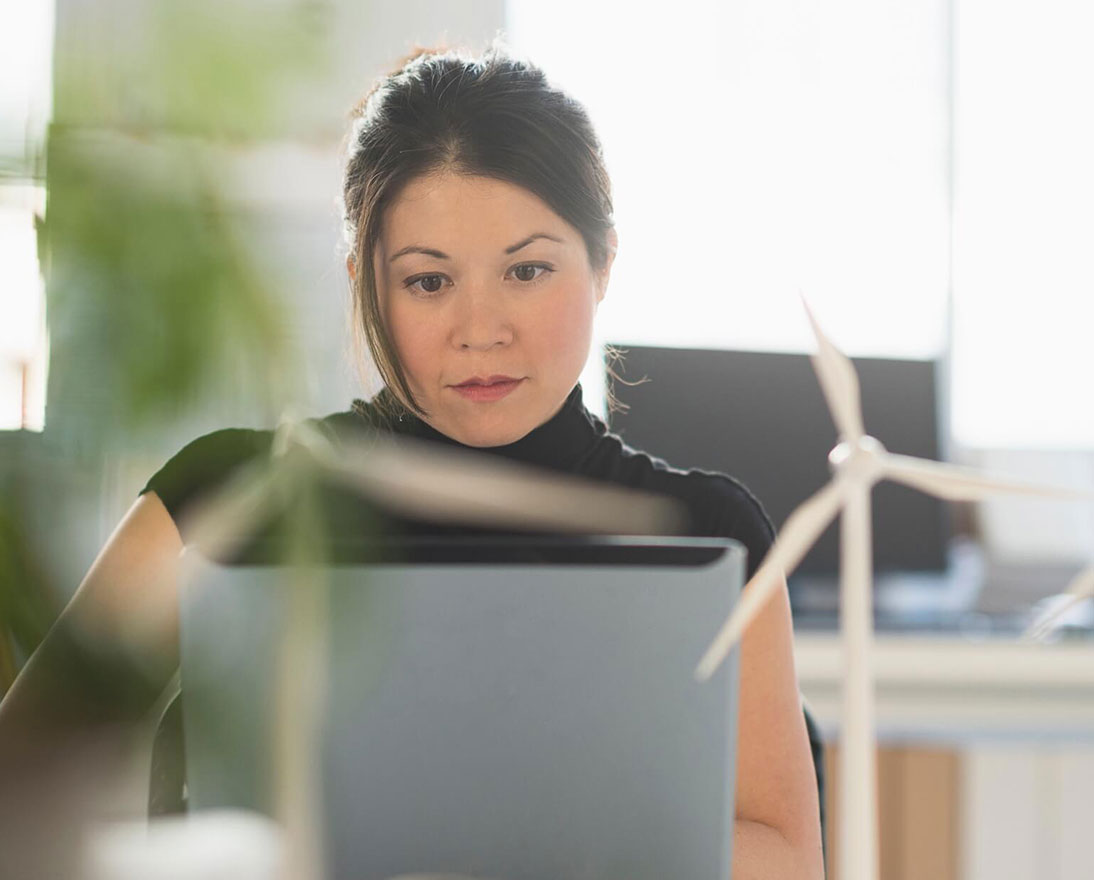Sustainability: managing risks and leveraging opportunities
SustainabilityArticleOctober 26, 2021
The transition to a sustainable world will require collaboration and due consideration for the risks and opportunities, according to Gabrielle Durisch, Head of Sustainability, Commercial Insurance at Zurich Insurance Group
For many, sustainability will mean climate change and the need to urgently cut greenhouse gas emissions. However, sustainability goes much wider, and covers additional issues like water resource security, biodiversity, and social and economic inequality. The common thread that runs through all these issues is the need to conserve and protect valuable resources, whether they are people, natural resources or the environment we all live in.
The past seventy years or so has seen huge population growth, economic expansion and the onward march of consumerism, putting increasing pressure on people, resources and the environment. Led by the debate on climate change, there is growing recognition that the status quo is untenable and that we collectively need to work towards a more sustainable future.
Transition risks
The transition to a sustainable world will not be easy. It will require huge changes in behaviour, from the food we eat, the clothes we wear, and the energy we consume. For businesses, the transition will change how products are designed, manufactured and delivered. It will also change consumer behaviour, workforce patterns, building use and transport, as well as create new industries around recycling and low carbon technology.
Becoming more sustainable will involve hard and complex decisions. For example, the move to a low-carbon economy will mean large scale job losses and economic damage for local communities and markets that are dependent on fossil fuels for domestic use or exports. The transition will also require the adoption of new technologies, processes and regulatory regimes that may have unintended or unexpected consequences. Consumers will also need to be kept informed and educated of the benefits if they are to make more sustainable choices and change old habits.
Pulling together
Risk managers can play an important role in the transition to sustainability, helping organizations achieve their sustainability goals, as well as identifying and managing associated risks. Companies and their boards will need to understand the risk implications of the transition to sustainability and find ways to control and mitigate them. Change will also give rise to opportunity as well as risk. For example, achieving net zero emissions by 2050 is expected to generate annual energy investment of US$5 trillion by 2030, according to the IEA.
The transition to sustainability will also require collaboration to manage the risks and develop solutions. One of the core skills of a risk manager is the ability to facilitate conversations around risk and opportunity, as well as bridge the gap between internal stakeholders, and external partners. Risk managers can sit with their organization’s sustainability team and help inform their understanding of the risks that could arise, and open dialogue on potential solutions.
Insurers also have an important role to play, working with government agencies, industry bodies and individual companies to understand the risks inherent in the transition and develop solutions. Zurich, for example, is a founding member of both the UN-convened Net-Zero Asset Owner Alliance and more recently the Net Zero Insurance Alliance. We also sit on the European Carbon+ Farming Coalition, a partnership between stakeholders aimed at decarbonising the European food system. We have even seconded underwriters to work with our customers to better understand what the transition means to their businesses and learn from working closely with them.
Sustainability solutions
Sustainability issues will vary by geography, sector and individual company. For example, climate change and carbon reduction are a top issue in Europe, but in Latin America, water resource security and improved sanitation infrastructure is of more immediate concern. However, existing insurance products and solutions can help address risks associated with the transition to sustainability, while insurers are developing new offerings that can help companies achieve their sustainability goals and strategies.
For example, the pandemic has raised the profile of employee health and wellbeing, and mental health in particular. There are a number of insurance products and solutions that can help close the protection gap and facilitate more equitable access to healthcare. Zurich LiveWell, which helps companies meet their employees’ wellness needs and promote healthier lifestyles, recently launched affordable group private healthcare cover in the UK that plugs the gap between public and private healthcare for employees.
Insurers can also help companies understand and transfer the risks of new technologies, such as green building materials, carbon capture and sequestration and renewables. At Zurich, we are expanding our insurance offering for the clean energy sector and in 2020 we expanded our natural hazard resilience programme to cover the potential impact of climate change as part of Zurich’s Climate Resilience offering. In fact, resilience is a key part of our sustainability strategy and underpins the ethos of our new Zurich Resilience Solutions business that aims to protect the people, property and profitability of customers by offering traditional, innovative and digital risk management services that support sustainability.
Resilient future
Sustainability is all about building resilience. We need to work together to protect the resources around us, and ensure that we leave behind a planet fit for future generations. The transition to sustainability should also create long term value for stakeholders, ensuring continuity of supply chains and the health and wellbeing of employees.
At Zurich, we have made a commitment to sustainability. It is embedded in our own corporate culture, and we continually strive to find new ways to reduce our impact on the environment and develop more sustainable products and services. As each individual employee is empowered to truly believe in sustainability we are perfectly placed to work with our customers on solutions for a more sustainable future.
Originally published on Commercial Risk Online on October 26 2021



